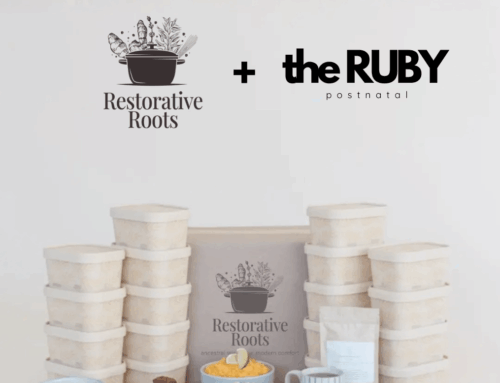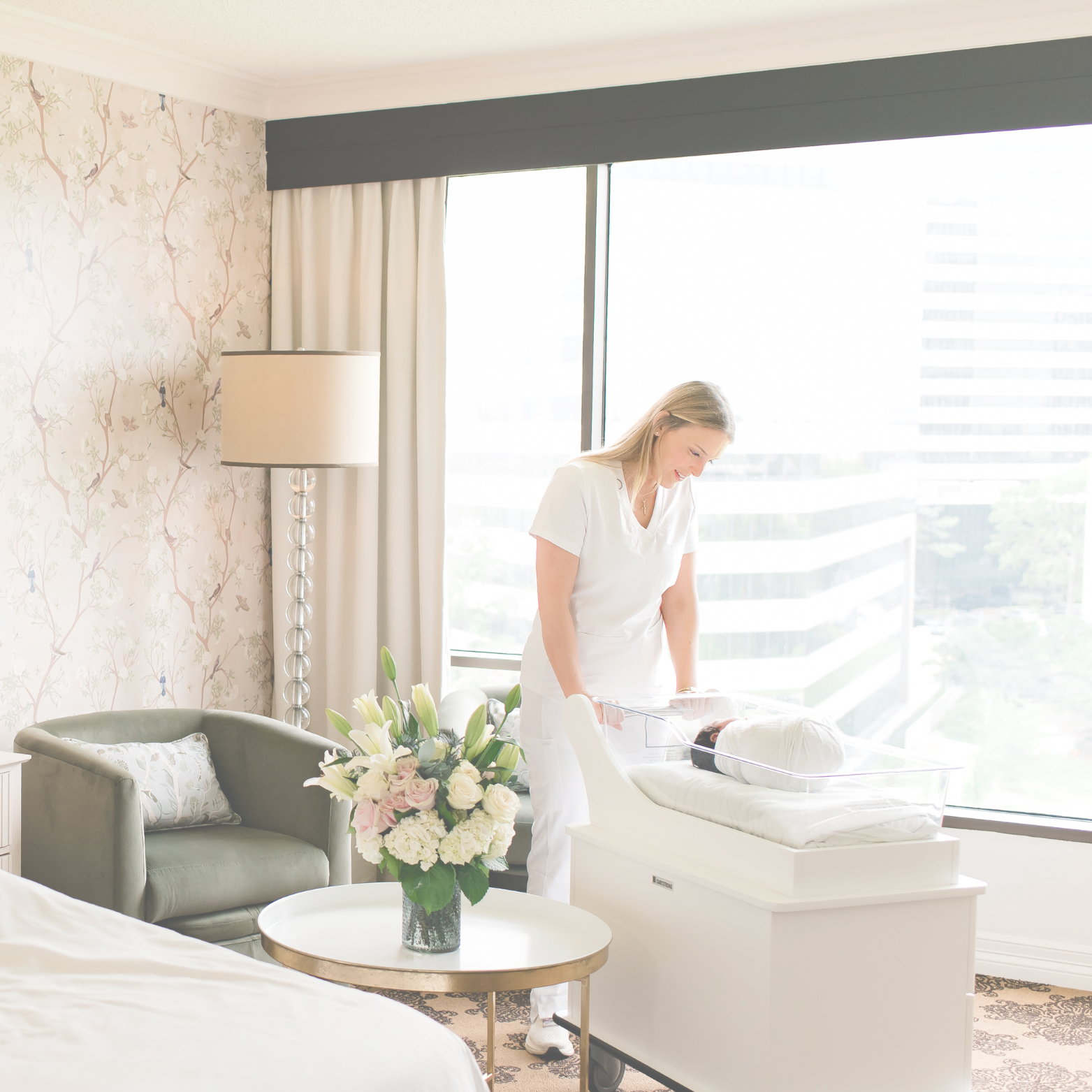A Fourth Trimester Guide: Surviving & Thriving Postpartum
The “fourth trimester” describes the crucial three-month period immediately following childbirth. Crucially, it is a time of immense physical recovery and emotional adjustment for the mother, often called the “Postpartum Period.” While the baby’s needs dominate, the mother’s health must be the top priority.
However, navigating this phase in a large, demanding city like Houston can feel overwhelming. This guide offers practical advice and local resources to help you, the Houston Fourth Trimester Guide for thriving, not just surviving.
The Fourth Trimester is your time to heal. Get practical solutions for physical recovery, sleep deprivation, and bonding with baby. See how Houston’s luxury postnatal retreat, The RUBY, is redefining maternal care.
Feeling overwhelmed postpartum? You’re not alone. This guide for parents breaks down the Fourth Trimester, offering expert solutions for exhaustion, body changes, and PPD/A. Prioritize you with dedicated postnatal support.

Physical Healing: What to Expect
Childbirth, whether vaginal or C-section, is an intense athletic event. Therefore, your body requires serious time and attention to heal. Many new mothers feel a great deal of exhaustion. For example, a sore perineum, uterine cramping, and intense breast or nipple discomfort are common realities.
Additionally, many women experience postpartum bleeding (lochia) for several weeks. You must prioritize rest, even though it is often pushed aside. Furthermore, managing pain is essential for recovery. Never hesitate to talk to your doctor about pain management options. Remember: healing is not linear. You must grant yourself patience during this intense period of Postpartum Recovery Houston Moms need.
- The Problem: Rushing physical activity, neglecting wound care, or not managing pain effectively can slow recovery and increase the risk of complications.
- The Solution:
- Prioritize Pelvic Floor Health: Many Houston physical therapists specialize in postpartum recovery. Start with gentle, doctor-approved movements, but consider a dedicated postpartum physical therapy consultation. It’s not just about Kegels; it’s about holistic core and pelvic floor rehabilitation.
- Stay Ahead of Pain and Healing: Stick to your prescribed pain management plan. Use sitz baths, witch hazel pads, and gentle compresses. For C-section recovery, be meticulous about keeping the incision clean and dry, and avoid lifting anything heavier than your baby.
The Sleep and Fuel Challenge
Adjusting to the constant demands of a newborn baby can feel overwhelming. These demands include round-the-clock feedings and diaper changes. Consequently, simultaneous recovery from childbirth presents a major challenge. You may wonder how you will ever find time for self-care or proper sleep again. First, you need to manage the reality of fragmented sleep.
In addition, you must eat nutrient-dense meals. Clearly, this is difficult when you are constantly tending to the baby. Therefore, adopt the philosophy of “Sleep When the Baby Sleeps” and focus on easy, pre-prepped meals. Protein, fiber, and healthy fats help stabilize blood sugar and combat the energy crashes the lack of sleep causes. Remember this: your nutritional intake directly fuels your healing and your mood.
- The Problem: Extreme fatigue exacerbates emotional fragility, weakens the immune system, and makes navigating basic daily tasks feel impossible.
- The Solution:
- Embrace the “Rest When Baby Rests” Mantra (Seriously): This is not a time for laundry, cleaning, or thank-you notes. If your baby is sleeping, you should be attempting to rest, even if it’s just lying down with your eyes closed.
- Implement a Night Shift Strategy: If you have a partner, clearly divide the night into shifts. For example, one parent manages the baby from 10 PM to 2 AM, and the other takes 2 AM to 6 AM. This allows each parent to get at least one guaranteed, uninterrupted chunk of sleep.
- Accept All Help: When friends or family offer help, request one of two things: a pre-cooked meal or a “baby shift” so you can nap for two hours.
Emotional Well-being and Mental Health
The hormonal shifts following birth are dramatic. Indeed, these changes cause a variety of emotional responses. You might experience the “baby blues,” which typically involves tearfulness and mood swings that resolve within the first two weeks. However, if these feelings persist, or if you feel crippling anxiety, despair, or have disturbing thoughts, you should immediately seek professional help.
Postpartum Mood and Anxiety Disorders (PMADs) are common and treatable. Specifically, Houston has numerous specialists and support groups dedicated to maternal mental health. Your partner and your medical provider must know how you feel. Ultimately, taking care of your mental health is the most important thing you do for your baby.
- The Problem: Undiagnosed or untreated PMADs can impact bonding, recovery, and the well-being of the entire family. Shame and stigma often prevent mothers from seeking help.
- The Solution:
- Know the Warning Signs: Persistent sadness, hopelessness, extreme anxiety, difficulty bonding, panic attacks, or intrusive thoughts are not normal “new mom jitters” and warrant attention.
- Find Local, Expert Support: Houston is home to specialized maternal mental health resources. The Center for Postpartum Family Health offers in-person and virtual therapy with specialists who truly understand the perinatal period.
- Connect with Peers: Postpartum Support International (PSI) is an invaluable national resource with a local network. They offer a HelpLine and connect mothers to virtual and in-person support groups in the Houston area and across Texas.
The myth of “bouncing back” after childbirth is a damaging one, especially here in high-achieving Houston. The reality is that the fourth trimester—the first 12 weeks postpartum—is a period of intense physical and emotional recovery that deserves the same focused attention as the preceding nine months of pregnancy. Instead of rushing back to ‘normal,’ new mothers should view this time as a necessary, sacred pause. It is a time for the body to heal from the monumental effort of birth, for hormones to rebalance, and, most crucially, for the profound bond with a new human being to take root. Our guide offers wisdom and practical solutions to turn this challenging transition into a truly restorative experience.

Rebuilding Connections with Your Partner
The arrival of a baby dramatically shifts the dynamic of your relationship. Intimacy, communication, and shared responsibilities are suddenly upended. Firstly, you and your partner must set realistic expectations for the first few months. The focus should be on teamwork and kindness, not perfection. Furthermore, many couples find that their sex life is placed on hold; this is normal.
Instead, define intimacy in new ways, like cuddling, quiet conversation, and acts of service. Secondly, communication is key. You must share your needs clearly with your partner. For example, clearly ask for “one hour alone” rather than expecting your partner to simply intuit you are exhausted. By doing this, you can protect your partnership during this challenging yet beautiful transition.
The Problem: Couples often fail to adjust their expectations or communicate their radically changing needs, which can place significant strain on the partnership during this vulnerable transition.
The Solution:
- Reset Expectations: Set realistic expectations for the first few months. The focus should be on teamwork and kindness, not perfection or “bouncing back” to your old routine.
- Redefine Intimacy: Recognize that your sex life may be placed on hold; this is completely normal. Instead, define intimacy in new ways, like cuddling, quiet conversation, and acts of service.
- Communicate Clearly: Share your needs directly with your partner. For example, clearly ask for “one hour alone” rather than expecting your partner to simply intuit that you are exhausted. By doing this, you can protect your partnership during this challenging yet beautiful transition.
Local Houston Support and Services: Introducing The RUBY Postnatal
For years, the U.S. model of postpartum care has been criticized for being minimal, placing undue burden on mothers to recover in isolation. But a revolutionary shift is happening right here in Houston, directly addressing all the concerns listed above.
Imagine recovering from childbirth not at home amidst piles of laundry, but in a tranquil, professionally-supported environment. Welcome to The RUBY Postnatal, Houston’s premier luxury postnatal retreat, perfectly nestled within the serene elegance of the Omni Hotel in the Galleria area.
The RUBY is not just a fancy hotel stay; it is a meticulously designed recovery experience. This dedicated space is founded on the belief that for a family to thrive, the mother must be cared for first.

How The RUBY Postnatal is Redefining the Fourth Trimester
For the Houston mother who understands that self-care is a necessity, not a luxury, The RUBY offers an all-inclusive solution to the common concerns of the fourth trimester, allowing you to focus purely on healing and bonding.
- Uninterrupted Rest and Expert Care: The greatest asset is the dedicated 24/7 infant care specialists. This allows the mother to achieve essential, uninterrupted sleep—the number one antidote to exhaustion and emotional fragility. You can rest assured knowing your baby is expertly fed, swaddled, and soothed a few steps away in the dedicated nursery.
- Nourishment for Healing: Forget ordering takeout. The RUBY provides chef-prepared, nutritious culinary meal service tailored for postpartum recovery, healing, and boosting milk supply. The food is specifically designed to replenish the nutrients depleted by pregnancy and childbirth.
- Professional Postnatal Support: The retreat is staffed by 24/7 postnatal care specialists and licensed nurses who provide compassionate, expert assistance with recovery, C-section healing, and maternal well-being. Additionally, certified lactation and feeding support is on-site to resolve any feeding struggles immediately.
- A Sanctuary for Mental Clarity: Located in the comforting luxury of a 4-star hotel suite, the environment itself is designed to foster stress reduction, mental clarity, and peace. It provides a peaceful cocoon away from the domestic demands and endless visitors that often derail rest at home.
The concept is simple: by outsourcing the practical demands of newborn care, meal preparation, and maternal recovery support to a team of experts, The RUBY gives the mother back her energy. This saved energy is then redirected to the most important job: healing her body and connecting with her baby.
The Fourth Trimester is your final trimester, and it is the most sacred. In Houston, you now have a choice to navigate this transition with the support and expertise you deserve. By seeking dedicated care, whether through local support groups, specialists, or a dedicated retreat like The RUBY Postnatal, you are not just surviving; you are building a foundation of wellness that will allow your entire family to flourish.
Helpful Links:
- American College of Obstetricians and Gynecologists (ACOG): https://www.acog.org/clinical/clinical-guidance/committee-opinion/articles/2018/05/optimizing-postpartum-care (Optimizing Postpartum Care)
- Postpartum Support International (PSI): https://postpartum.net/stories-of-hope-finding-community-in-the-fourth-trimester/ (Stories of Hope: Finding Community in the Fourth Trimester)
- The Center for Postpartum Family Health (Houston Local Resource): https://cpfh.org/beyond-the-birth-plan-what-families-really-need-to-prepare-for (Beyond the Birth Plan: What Families Really Need to Prepare For)












